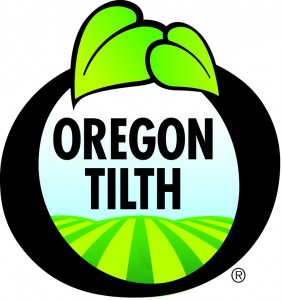CSA is an acronym for Community Supported Agriculture and is a way to buy fresh fruits and vegetables directly from the farmer in your local community. Supporting local agriculture is a way to support your local business community, your neighbors and keep your food dollars in the local economy.
CSA are also a way to enjoy a better quality of life through the improved nutritional value of fresher produce that is only hours old instead of the typical weeks. Produce purchased at grocery stores is mass produced, picked before ripe, stored and shipped long distances before being offered for sale.
Important nutrients for the body found in fresh foods begin to diminish when the food is picked. So the sooner the food is eaten the more nutrients there are for the body. So even “fresh” produce at a typical grocery store is often weeks old and has lost much of it’s nutritive value.
The concept of CSA is simple. A farmer offers a certain number of “shares” to the public. Typically the share consists of a box of vegetables, but other farm products may be included such as fruit, fresh eggs or honey.
Consumers may purchase a share (aka a “membership” or a “subscription”) and in return receive a box (bag, basket) of seasonal produce each week throughout the farming season.
There is an important concept woven into the CSA model that is different from the ususal commercial transaction of buying food from a corporation. This is the notion of shared risk. Nature is the final authority on the bounty of each year’s crop. Despite our best efforts to ensure the highest yield of vegetables Nature will have her way with us.
In the Pacific Northwest, 2010 was colder than usual and so the tomato crop was affected. Most tomato growers had little of no tomatoes to show for their efforts. This is an example of the nature of shared risk.
The shareholders reap the bounty and accept those times when Mother Nature intervened and reduced the crop.
We are all in this together and this fosters a sense of community and connectedness.
CSA are also wonderful way to introduce children to food and where it comes from. Often picky eaters will eat food when they are involved in the process and see where it comes from. Most CSAs encourage shareholders to visit and bring their children.
A CSA benefits the shareholders with nutritious fruits and vegetables for healthy bodies, satisfaction of supporting their neighbors by buying local and thus stimulating the local economy and by the rich personal relationships that grow from being a member.
The local farmer benefits by being abile to market their product (sell the farm’s shares) before their 16 hour days in the field growing the food begins. It helps with cash flow and provides an opportunity to get to know the people that eat the food.
For more information about the variety of CSAs and to find a CSA in your area check out Local Harvest online.
What does Organic mean? Find out more directly from the Oregon Tilth, international recognized certification standards for organic farms.
100% Consumer and Labeling FAQ’s from the Oregon Tilth
What is organic?
(read more at the Oregon Tilth’s website page “What is Organic?”)
“Organic refers not only to the food itself, but also to how it is produced and processed. Organic food production is based on a system of farming that mimics natural ecosystems and maintains and replenishes the fertility and nutrients of the soil. Organic Production integrates cultural, biological and mechanical practices that foster cycling of resources, promote ecological balance and conserve biodiversity. Organic foods are produced without the use of genetically modified organisms and irradiation. Processed organic foods are handled carefully to maintain the integrity of organic ingredients going into the products.”
The term “organic” has been tossed around a lot in the media and advertising and not all product labeled “organic” is the same.
The Oregon Tilth defines four terms:
- 100% Organic
- Organic
- Made with Organic Ingredients
- Products with less than 70% Organic Ingredients
Northwest Organic Farms is a Oregon Tilth Certified Organic (OTCO) farm. The OTCO is an internationally recognized symbol of organic integrity. OTCO provides a system that combines strict production standards, on-site inspections, and legally binding contracts to protect the producers and buyers of organic products.


